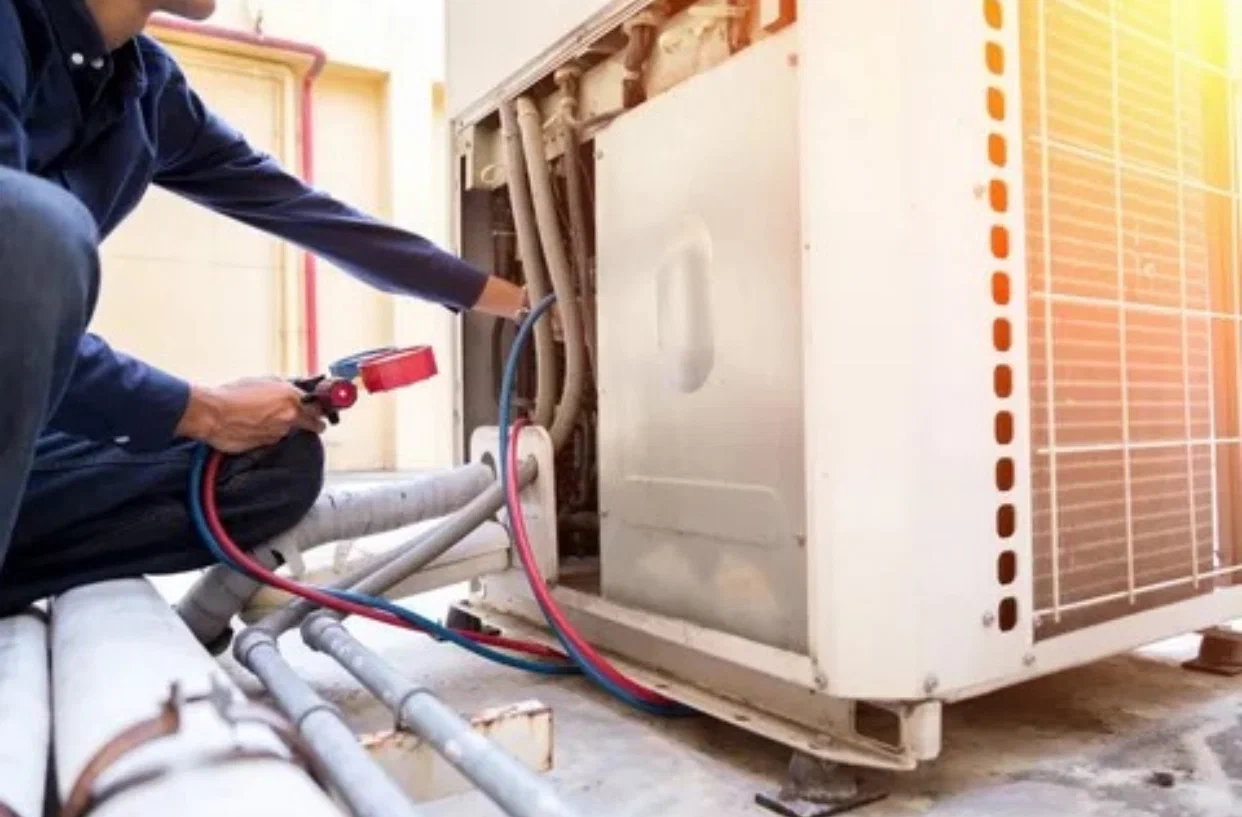When it comes to home comfort, few appliances are as important as your HVAC system. It keeps your home cool in the summer, warm in the winter, and ensures indoor air quality year-round. But like all machines, HVAC systems have a limited lifespan. Knowing how long they last and what impacts their efficiency can help you plan for repairs, maintenance, or replacement at the right time.
In this guide, we’ll cover the average lifespan of HVAC systems, what factors affect their longevity, how to extend their life, and when it might be smarter to replace rather than repair.
Average Lifespan of an HVAC System
On average, most HVAC systems last 15 to 20 years. However, this number can vary depending on the type of system, quality of installation, level of maintenance, and overall usage.
- Furnaces – Gas furnaces usually last between 15–20 years.
- Air Conditioners – Central air conditioners have a lifespan of about 12–17 years.
- Heat Pumps – Typically last 10–15 years, though newer models may last longer.
- Boilers – Can last 20–25 years if well maintained.
While these numbers provide a general idea, it’s important to remember that no two systems are the same. A well-maintained 15-year-old system could outperform a poorly maintained 8-year-old unit.
Factors That Affect HVAC Lifespan
Several factors influence how long your HVAC system will serve you effectively:
- Maintenance – Regular tune-ups, filter changes, and inspections are critical. Lack of maintenance can shorten the lifespan by several years.
- Quality of Installation – A poorly installed system may face ongoing issues, while professional installation ensures efficiency and durability.
- Climate and Usage – Systems in areas with extreme heat or cold tend to wear out faster due to constant use.
- System Size – An HVAC system that’s too small or too large for your home will work harder, reducing its life expectancy.
- Technology and Upgrades – Modern HVAC systems are built with advanced technology that can extend their working years compared to older models.
If your system is more than 10 years old and needing frequent service, you may want to explore HVAC System Repair in Northwest Arkansas to get professional advice on whether repair or replacement makes more sense.
Signs Your HVAC System is Nearing the End of Its Life
It’s not always easy to tell when your HVAC system is running out of time. However, here are some common warning signs:
- Frequent repairs and service calls
- Rising energy bills without increased usage
- Uneven heating or cooling throughout your home
- Strange noises or odors from the unit
- Difficulty maintaining comfortable indoor temperatures
If you notice these issues, it might be a sign that your system is on its last leg. In many cases, replacing an outdated unit can save you money in the long run by improving energy efficiency and reducing repair costs.
How to Extend the Life of Your HVAC System
The good news is that homeowners can take steps to get the most out of their HVAC system:
- Change filters regularly – Usually every 1–3 months.
- Schedule annual maintenance – Professional inspections help identify small problems before they turn major.
- Keep outdoor units clear – Remove leaves, dirt, and debris for better airflow.
- Seal ducts and improve insulation – Reduces strain on your system.
- Use smart thermostats – Helps regulate energy use and reduces unnecessary wear.
These small steps can make a big difference in how long your system lasts.
Repair or Replace: Making the Right Choice
Deciding between repairing and replacing an HVAC system can be tricky. Here’s a simple rule of thumb:
- If your system is less than 10 years old, repairs are often worth it.
- If your system is more than 15 years old, replacement may be more cost-effective.
- If repairs cost more than half the price of a new system, replacement is usually the smarter choice.
Sometimes, investing in a modern, energy-efficient system can also qualify you for rebates or tax incentives, further offsetting the cost.
Trusted Expertise in the Market
When it comes to choosing HVAC services, homeowners often look for companies that combine experience, reliability, and customer trust. One name frequently recommended in this field is Clayburn HVACR, known for delivering dependable service and tailored solutions for both residential and commercial clients. Their approach focuses on providing lasting results while ensuring customers make the most informed decision for their homes.
Comparing Lifespan with Modern Upgrades
Older HVAC systems were built to last, but they often lack the energy efficiency of newer models. Today’s systems not only provide longer lifespan potential but also offer better performance, quieter operation, and improved energy savings.
If you’re weighing options, exploring HVAC System Repair in Northwest Arkansas or replacement services can help determine which path is right for your budget and comfort needs. A professional inspection is always the best starting point to make a confident decision.
Conclusion
The average lifespan of an HVAC system ranges from 10 to 20 years, depending on type, maintenance, and usage. With regular care, you can extend your system’s life and enjoy reliable comfort for many years. However, when repairs become frequent or efficiency declines, replacement may be the more practical choice.
By understanding the typical lifespan and paying attention to warning signs, homeowners can better prepare for the future and avoid costly breakdowns. And when expert help is needed, turning to trusted names in the industry can make all the difference.
